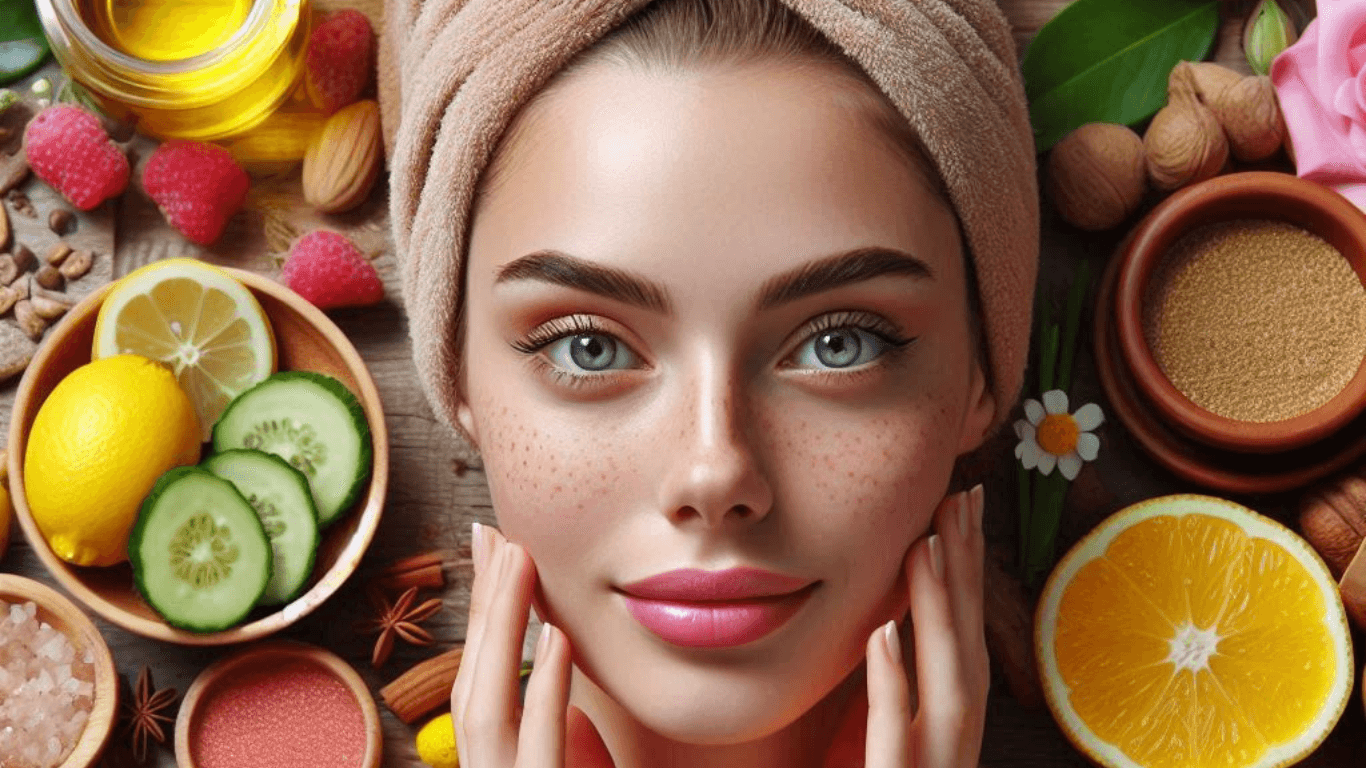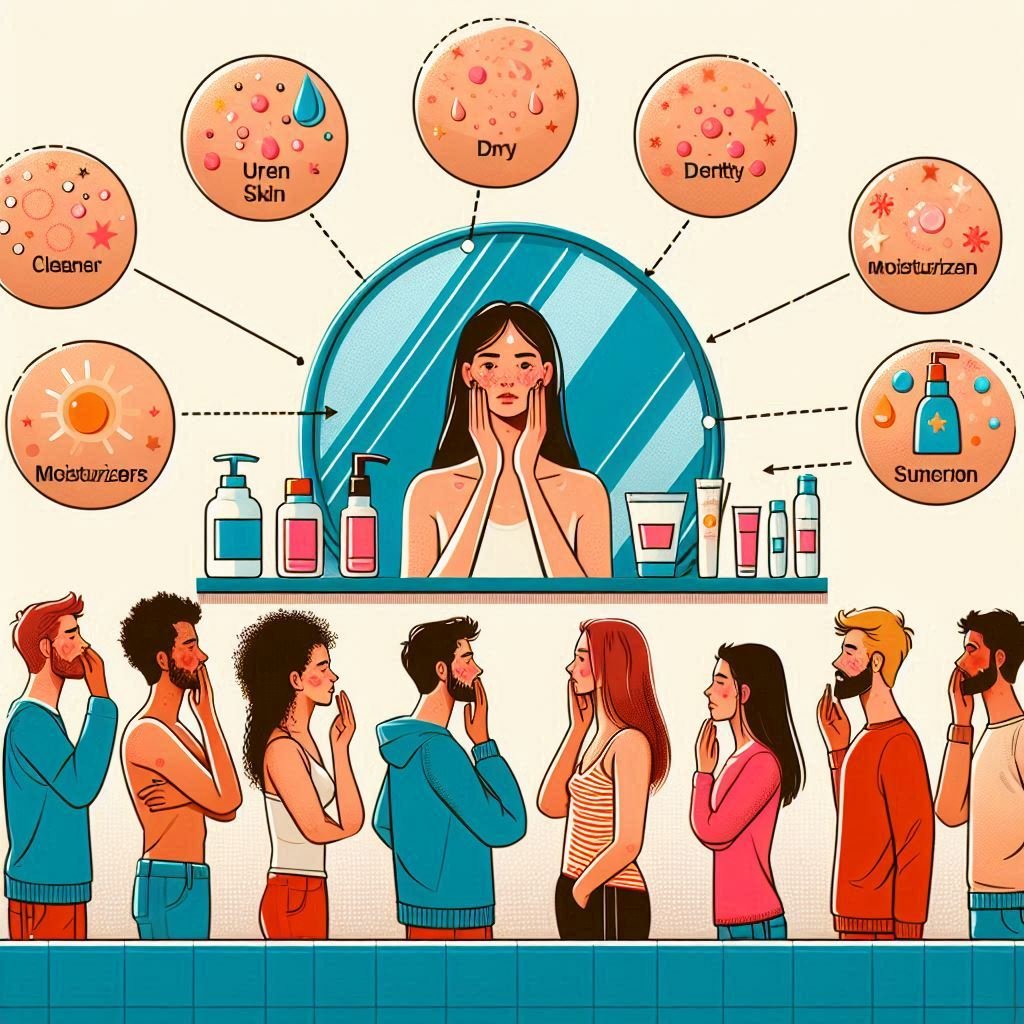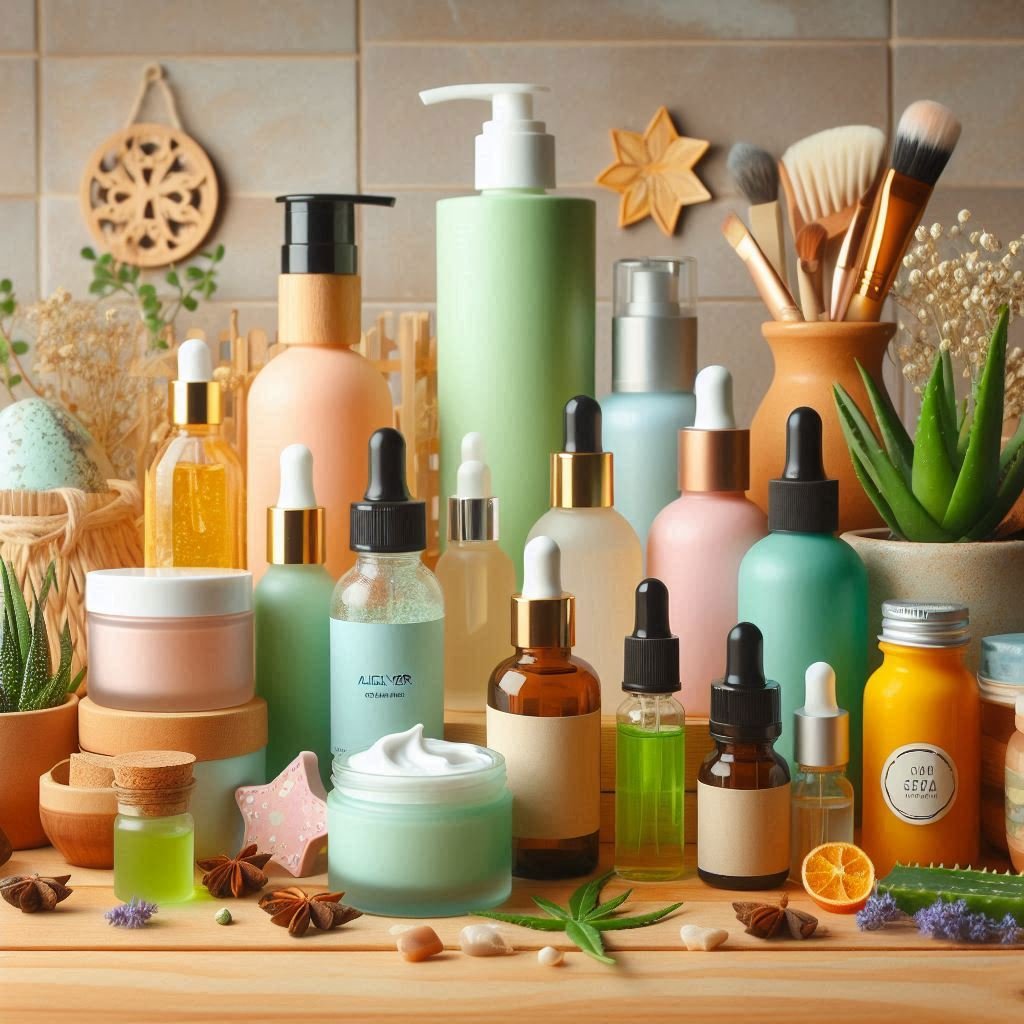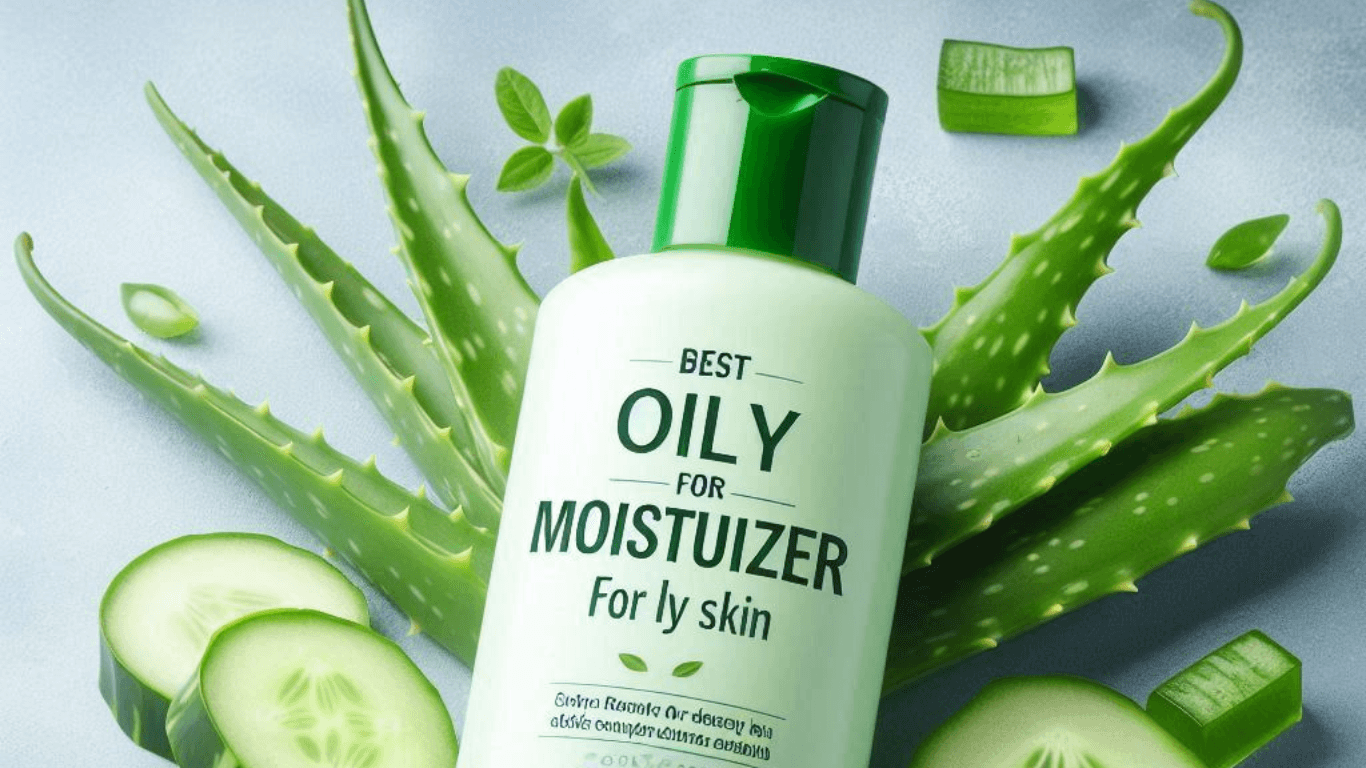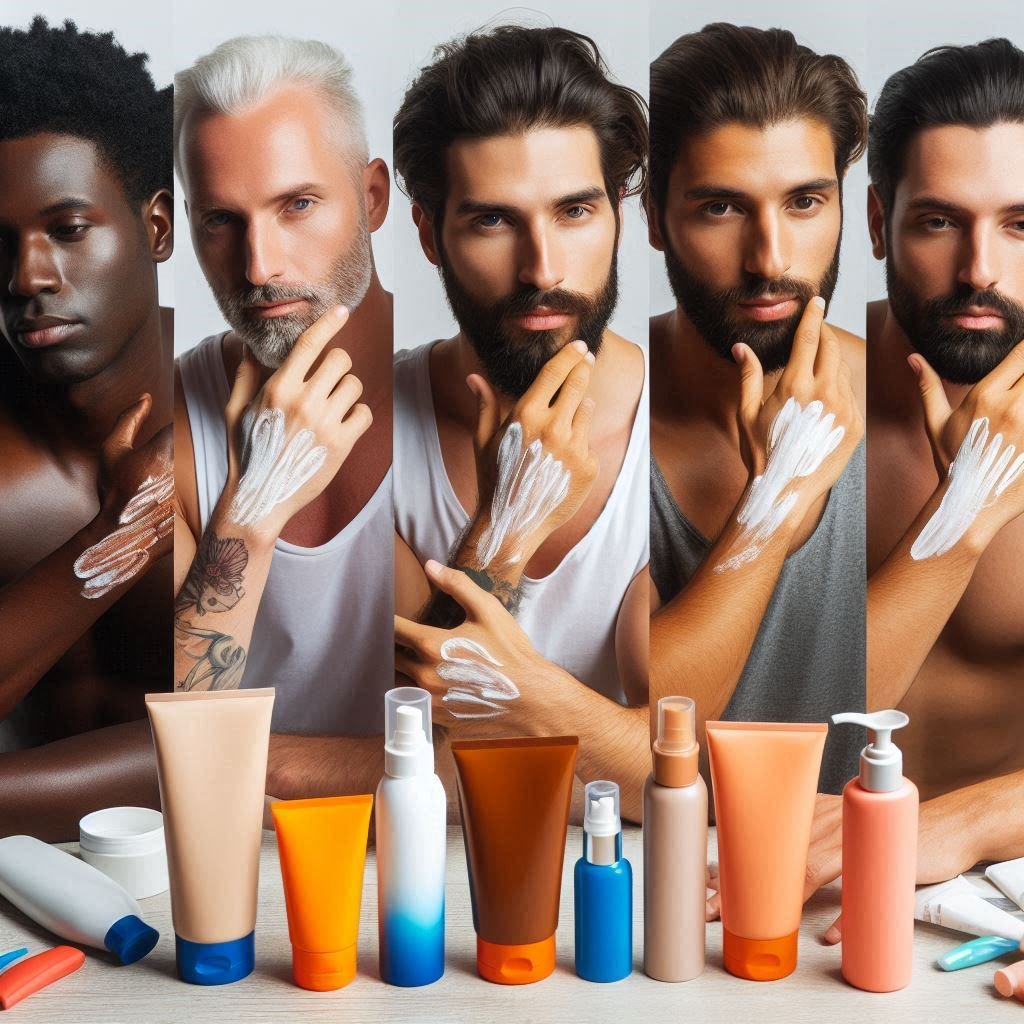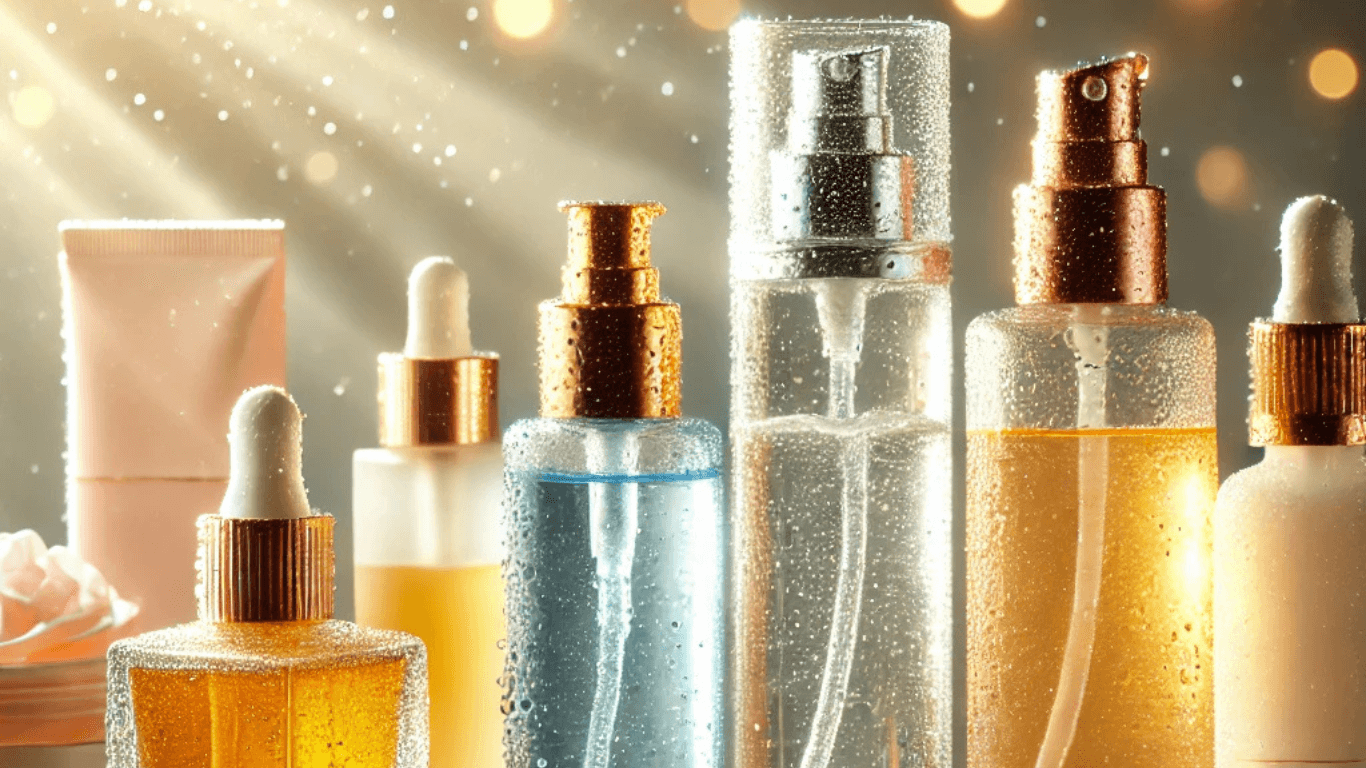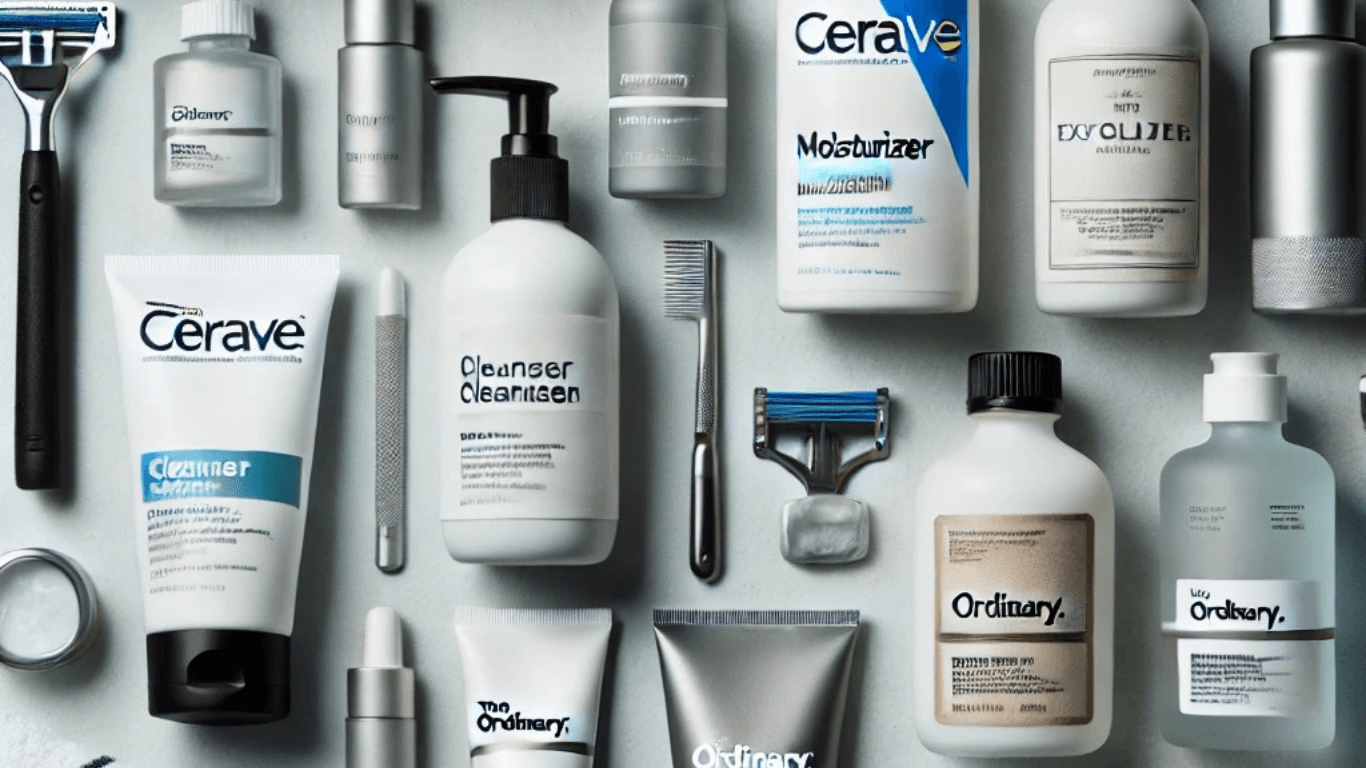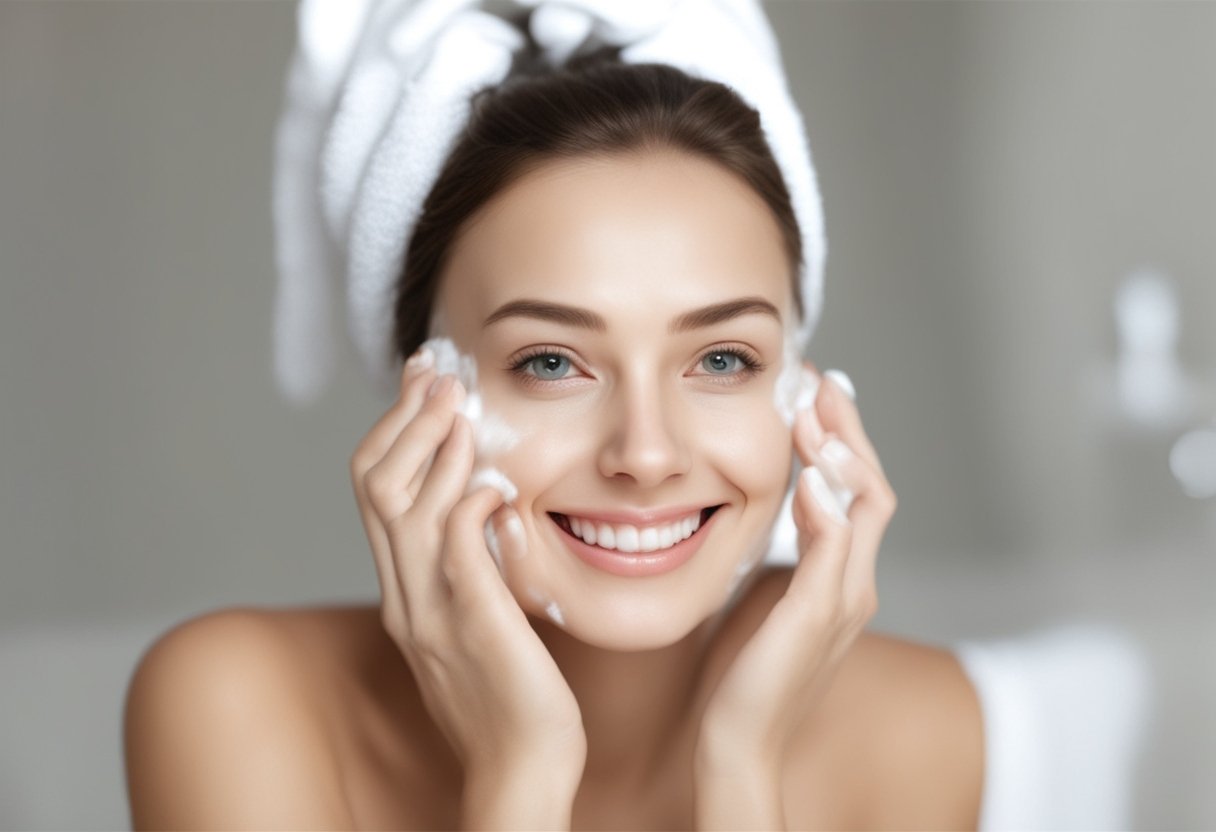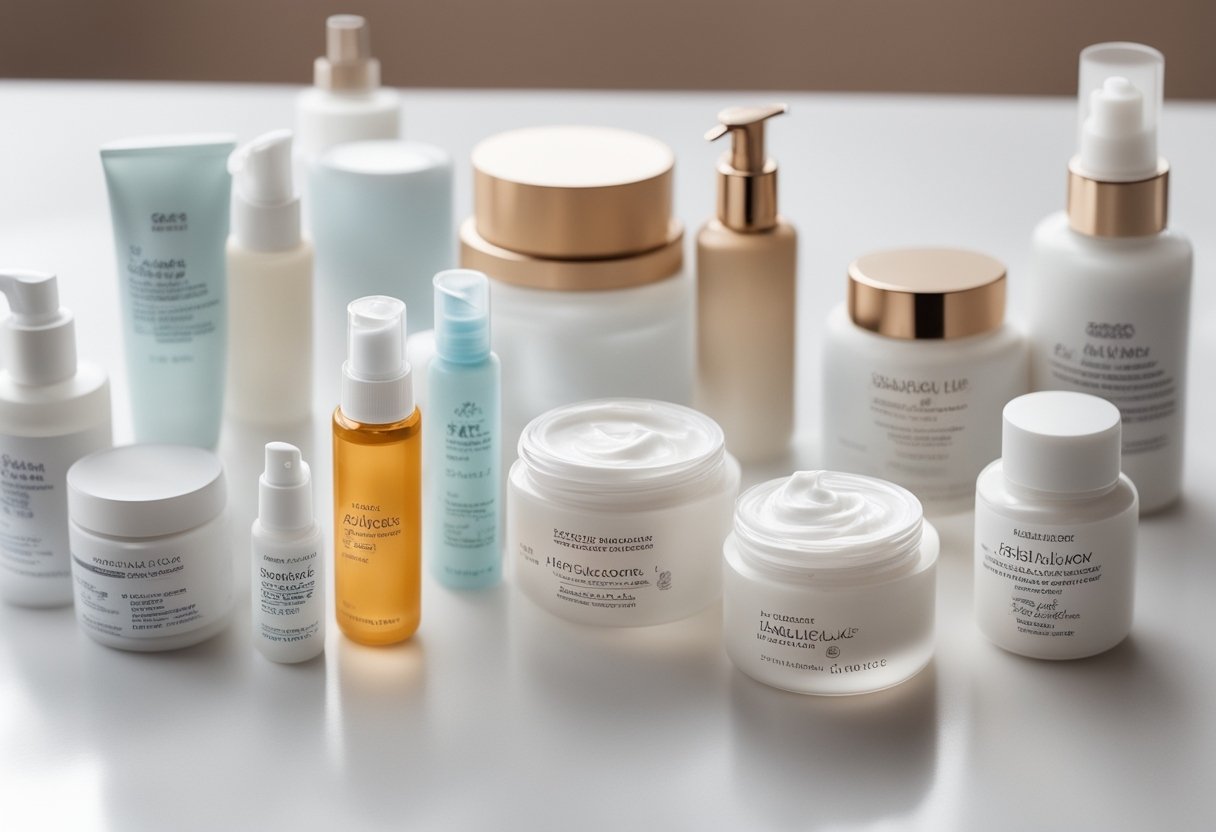Natural Skincare Remedies: DIY Treatments for Glowing Skin | Kalki Fashion In a sea of many skincare products, it’s easy to miss out on some of the natural remedies, which are quite similarly amazing. It is easy to get caught in a whirlwind of chemical-laden DIY skincare treatments as more holistic approaches to beauty gain popularity. This blog post from Kalki Fashion has tried to take you through some of the best natural remedies for skincare that can get you nicely glowing and radiant skin. Benefits of Natural Skincare There are plenty of advantages to using natural products on your skin. No Harsh Chemicals: Many commercial products contain chemicals that can irritate the skin. Natural ingredients are gentler and safer. Cost-Effective: DIY treatments are often more affordable than store-bought products. Eco-Friendly: Natural skincare is better for the environment, as it reduces plastic waste and harmful chemical runoff. Customizable: You can tailor DIY treatments to your specific skin type and needs. Understanding Your Skin Type Make sure you know the type of your skin before you start working with natural remedies so that you can choose the best for you: Normal Skin: Balanced, with minimal imperfections. Dry Skin: Flaky, rough, and prone to irritation. Oily Skin: Shiny, with enlarged pores and frequent breakouts. Combination Skin: Oily in some areas (T-zone) and dry in others. Sensitive Skin: Easily irritated and prone to redness. DIY Treatments for Glowing Skin 1. Honey and Lemon Face Mask Benefits: Honey is a natural humectant. That means it retains moisture so that it remains in the skin. Honey is also used as an antibacterial agent. The presence of vitamin C in lemon juice makes it suitable as it lightens your skin. Ingredients: 1 tablespoon of raw honey 1 teaspoon of fresh lemon juice Instructions: Mix honey and lemon juice in a bowl. Apply the mixture to your face, avoiding the eye area. Leave it on for 15-20 minutes. Rinse off with warm water and pat dry. 2. Oatmeal and Yogurt Exfoliating Scrub Benefits: Oatmeal soothes and moisturizes the skin, while yogurt contains lactic acid, which gently exfoliates and brightens. Ingredients: 2 tablespoons of finely ground oatmeal 1 tablespoon of plain yogurt Instructions: Combine oatmeal and yogurt in a bowl. Gently massage the mixture onto your face in circular motions. Leave it on for 10-15 minutes. Rinse off with warm water and pat dry. 3. Avocado and Honey Hydrating Mask Benefits: Avocado is rich in healthy fats and vitamins that nourish the skin. Honey locks in moisture, leaving the skin soft and supple. Ingredients: 1/2 ripe avocado 1 tablespoon of honey Instructions: Mash the avocado in a bowl until smooth. Add honey and mix well. Apply the mask to your face and leave it on for 15-20 minutes. Rinse off with warm water and pat dry. 4. Green Tea and Aloe Vera Toner Benefits: Green tea is packed with antioxidants that protect the skin from damage. Aloe vera soothes and hydrates. Ingredients: 1 green tea bag 1/2 cup of water 1 tablespoon of aloe vera gel Instructions: Brew the green tea and let it cool. Mix the cooled tea with aloe vera gel. Pour the mixture into a spray bottle. Spritz it onto your face or apply with a cotton pad. 5. Turmeric and Milk Brightening Mask Benefits: Turmeric has anti-inflammatory and brightening properties. Milk contains lactic acid, which gently exfoliates the skin. Ingredients: 1 teaspoon of turmeric powder 2 tablespoons of milk Instructions: Mix turmeric and milk in a bowl to form a paste. Apply the paste to your face, avoiding the eye area. Leave it on for 10-15 minutes. Rinse off with warm water and pat dry. 6. Cucumber and Aloe Vera Cooling Mask Benefits: Cucumber hydrates and cools the skin, while aloe vera soothes irritation. Ingredients: 1/2 cucumber, blended 2 tablespoons of aloe vera gel Instructions: Blend the cucumber and mix it with aloe vera gel. Apply the mixture to your face. Leave it on for 15-20 minutes. Rinse off with cool water and pat dry. 7. Coconut Oil and Sugar Lip Scrub Benefits: Coconut oil hydrates the lips, while sugar exfoliates dead skin cells. Ingredients: 1 tablespoon of coconut oil 1 tablespoon of sugar Instructions: Mix coconut oil and sugar in a bowl. Gently scrub your lips with the mixture for 1-2 minutes. Rinse off with warm water and pat dry. 8. Banana and Honey Anti-Aging Mask Benefits: Bananas are rich in vitamins and antioxidants that help reduce the appearance of fine lines. Honey hydrates and softens the skin. Ingredients: 1/2 ripe banana 1 tablespoon of honey Instructions: Mash the banana in a bowl until smooth. Add honey and mix well. Apply the mask to your face and leave it on for 15-20 minutes. Rinse off with warm water and pat dry. 9. Egg White and Lemon Pore Tightening Mask Benefits: Egg whites help tighten pores and reduce excess oil, while lemon brightens the skin. Ingredients: 1 egg white 1 teaspoon of lemon juice Instructions: Beat the egg white until it becomes frothy. Add lemon juice and mix well. Apply the mask to your face and leave it on for 10-15 minutes. Rinse off with warm water and pat dry. 10. Rose Water and Glycerin Hydrating Mist Benefits: Rose water soothes and hydrates, while glycerin locks in moisture. Ingredients: 1/4 cup of rose water 1 tablespoon of glycerin Instructions: Mix rose water and glycerin in a spray bottle. Spritz the mist onto your face as needed throughout the day for a refreshing boost of hydration. Conclusion By Kalki Fashion There are natural skincare remedies that will suit you much better than these over-the-counter versions. You can use ingredients that are readily available in your house and have no harsh chemical added to them, so you can make treatments that are personalized for your needs. If you add these simple homemade treatments to your everyday skincare routine, you will surely get perfect, healthy glowing skin. At Kalki Fashion, we believe in the power of natural beauty. Try these natural skincare remedies to improve your skin’s health and glow. Remember, consistency is the key, and with regular
Kalki Fashion – Common Skin Problems and Solutions
Kalki Fashion – Common Skin Problems and Solutions Our skin encounters lots of environmental factors, lifestyle choices, and biological changes that provoke many skin problems. Once you learn the reasons behind these issues and how to treat them, your skin ought to flourish as well. This short guide will teach you a few common problems that occur with your skin, their causes, and some very effective product solutions. 1. Acne Acne is one of the most common skin disorders where the follicle of hair is plugged with oil and dead skin cells, giving rise to this condition, usually in the form of whiteheads and blackheads, as pustules or cystic lesions. Causes: Hormonal changes Excess oil production Bacteria Clogged pores Solutions: Cleanse Regularly: Mild, oil-free cleanser will effectively mopped away excess oils and other impurities Product: Neutrogena Oil-Free Acne Wash – Its ingredients contain salicylic acid to aid in helping to clear acne and prevent further outbreaks. Spot Treatments: Topical treatments that can be applied directly to areas with breakouts, these have benzoyl peroxide or salicylic acid in them. Product: Clearasil Rapid Rescue Spot Treatment – Shrinks pimple size and reduces redness in hours. Non-Comedogenic Products: Every skincare and makeup product is labeled “non-comedogenic” to prevent clogged pores. Product: Cetaphil DermaControl Oil Absorbing Moisturizer – Ultra light, oil-free moisturizer with SPF 30. Professional Treatments: For severe cases of acne, consult a dermatologist to discuss chemical peels or prescription medication such as tretinoin. 2. Eczema Eczema, also known as atopic dermatitis, is a chronic condition characterized by skin that is chronically inflamed, red, and itchy. Causes: Genetic factors Environmental triggers (e.g., allergens, harsh soaps) Immune system dysfunction Solutions: Moisturize Frequently: Keep your skin moisturized with non-scented, rich moisturizers. Product: CeraVe Eczema Relief Cream – Has ceramides and colloidal oatmeal to calm and protect the skin. Avoid Triggers: Identify and avoid triggers such as specific soaps, detergents, and stress. Use Mild Cleansers: Use soap-free gentle cleansers. Product: Aveeno Skin Relief Fragrance-Free Body Wash – Gentle soothing for sensitive skin. Medications: Apply over-the-counter hydrocortisone cream or prescription meds, as prescribed by your dermatologist. 3. Rosacea Rosacea is a chronic skin disease that can be characterized by its redness and swelling with visible blood vessels, mostly on the face. It can also cause small, red, pus-filled bumps. Causes: Genetic predisposition Environmental triggers (e.g., sun exposure, stress) Vascular abnormalities Solutions: Gentle Skincare: Use only mild, non-irritating skincare products. Product: La Roche-Posay Toleriane Hydrating Gentle Cleanser – Fragrance-free and suitable for sensitive skin. Sun Protection: Always wear sunscreen to avoid UV rays, which may exacerbate rosacea. Product: EltaMD UV Clear Broad-Spectrum SPF 46 – Mineral-based sunscreen that is lightweight and non-irritating. Anti-Inflammatory Treatments: Consider topical or oral antibiotics prescribed by a dermatologist. Product: Metrogel (metronidazole) – A prescription antibiotic gel that reduces inflammation and redness. Lifestyle Changes: Avoid triggers like spicy food, alcohol, and extreme temperatures. 4. Hyperpigmentation Hyperpigmentation can be understood as the darkened area of skin as a result of the sun, acne scars, or hormonal issues, among others. Causes: Sun exposure Acne scars Hormonal changes (e.g., melasma) Solutions: Sun Protection: Wear sunscreen to avoid further darkening of the skin. Product: La Roche-Posay Anthelios Melt-in Milk Sunscreen SPF 100 – Provides high UV protection. Brightening Products: Use products containing vitamin C, niacinamide, and alpha arbutin to fade out dark spots. Product: The Ordinary Vitamin C Suspension 23% + HA Spheres 2% – Brightens the skin and reduces the appearance of dark spots. Exfoliation: Regular AHAs or BHAs exfoliation can actually help some cases with fading pigmentation. Product: Paula’s Choice Skin Perfecting 2% BHA Liquid Exfoliant – Gently exfoliates to reveal smoother, clearer skin. Professional Treatments: Consider laser therapy or chemical peels for more stubborn forms. 5. Aging Skin Aging skin tends to grooved with wrinkles, fine lines, and loss of elasticity. This is a natural effect of time as collagen and elastin production decline. Causes: Natural aging process Sun exposure Lifestyle factors (e.g., smoking, poor diet) Solutions: Hydration: Keep hydrated skin by using moisturizers that contain hyaluronic acid and ceramides. Product: Neutrogena Hydro Boost Water Gel – Hydrates and plumps the skin. Antioxidants: Apply products with antioxidants vitamin C and E that can safeguard your skin from environmental factors. Product: SkinCeuticals C E Ferulic – A potent antioxidant serum that protects against environmental damage. Retinoids: Retinoids can stimulate collagen production and enhance the age-related diminution of lines. Product: Differin Gel – An over-the-counter retinoid that helps to reduce fine lines and improve skin texture. Sun Protection: And of course, always apply sunscreen so that your skin does not suffer damage from UV rays, which hasten aging. Product: Neutrogena Ultra Sheer Dry-Touch Sunscreen SPF 100 – Provides high UV protection and a matte finish. Conclusion One of the most crucial things to understanding for healthy skin is knowing your skin type and common problems it is subjected to. Use of the correct products and proper skincare routines can do wonders in managing and even bettering your skin. Remember, the mantra of skincare is consistency. Take consult with a dermatologist at all times for personalized advice and treatment. Armed with this knowledge, take on common skin problems and move toward healthier, more radiant-looking skin. Skincare journey, start now! Popular 5 Sneakers Every Sneakerhead Woman Should Own – Kalki Fashion September 23, 2024/No Comments 5 Sneakers Every Sneakerhead Woman Should Own Sneakers aren’t just about comfort anymore—they’re a symbol of personal style, culture, and… Read More Nighttime Skincare Secrets: How to Supercharge Your Skin’s Overnight Renewal August 7, 2024/No Comments The evening hours serve not only as a period for relaxation but also as an excellent chance to improve your… Read More Men’s Wedding Fashion Ideas from Kalki Fashion August 7, 2024/No Comments Men’s Wedding Fashion Ideas: Your Ultimate Guide to a Stylish Wedding Weddings are never just confined to brides when… Read More Makeup for Beginners: Essential Products and Tips for a Flawless Look August 5, 2024/No Comments Beginning with cosmetics can be both thrilling and daunting. With an endless array of items and methods, it’s simple to… Read More Tags Fashion Skincare Makeup Style Fashion Fashion Mistakes to Avoid: A Comprehensive Guide to Perfecting Your Style with Kalki Fashion November 4, 2024/No Comments Fashion Mistakes to Avoid: A Comprehensive Guide to Perfecting Your Style – kalki fashion Everyone commits fashion mistakes at one… Read More Kalki Fashion’s Guide: Embrace Festive Glamour and Everyday Elegance This Week October 21, 2024/No Comments This Week in Fashion: Embracing Festive Glamour and Everyday Elegance – Kalki Fashion Explore the latest fashion trends, from Diwali-inspired looks to fall-winter It’s been quite the affair… Read More Top 10 Fashion Brands In India – kalki fashion October 17, 2024/No Comments Top 10 Fashion Brands in India: A Comprehensive Review – Kalki
Best Skincare Products: Your Ultimate Guide By Kalki Fashion
Best Skincare Products: Your Ultimate Guide – Kalki Fashion This only happens when the skin is taken proper care of. There are just too many products out in the market, making one utterly bewildered. Worry not as we are going to break down the most reliable ones available in the market with suggestions from Kalki Fashion. This skincare essentials range from cleanser, moisturizer, eye creams to sunscreen. For your easy reference, they cover each of the broad and wide-ranging categories including dryness, acne-prone skin, tanning, under eye problems, and pigmentation. Best Cleanser CeraVe Hydrating Cleanser Features: Non-foaming, gentle formula with hyaluronic acid and ceramides. Uses: Removes dirt and makeup while hydrating the skin. Key Ingredients: Hyaluronic acid helps retain moisture, while ceramides restore the skin barrier. Suitable for: All skin types, especially dry and sensitive skin. This cleanser is gentle enough for daily use without stripping the skin of its natural oils. A gentle cleanser such as CeraVe Hydrating Cleanser is used to make sure that your skin is clean without losing the necessary moisture. Ceramides are added to this, which help in strengthening the barrier of the skin. This makes it ideal for people with sensitive or dry skin. Best Toner Pixi Glow Tonic Features: Contains glycolic acid, ginseng, and aloe vera. Uses: Exfoliates, brightens, and soothes the skin. Key Ingredients: Glycolic acid exfoliates dead skin cells, ginseng improves circulation, and aloe vera soothes the skin. Suitable for: All skin types, particularly dull and uneven skin. Toners are, in fact a must-do in all skincare routines. Pixi Glow Tonic is amazing, where glycolic acid works so gently and effectively to get rid of dead skin layers, hence you have skin that is radiant-looking with a fresh and rejuvenated feel to it. Hydration comes from aloe vera which soothes the skin to its needs. Best Serum The Ordinary Niacinamide 10% + Zinc 1% Features: High concentration of niacinamide and zinc. Uses: Reduces blemishes, regulates sebum production, and improves skin texture. Key Ingredients: Niacinamide (Vitamin B3) reduces inflammation and improves elasticity, while zinc regulates oil production and prevents acne. Suitable for: Oily and acne-prone skin. Serums are highly concentrated, and one can address the specific skin concerns with their use. For example, for oily or acne-prone skin, the Ordinary Niacinamide 10% + Zinc 1% serum is perfect. It reduces redness and blotchiness due to Niacinamide and helps control sebum production because of zinc. Best Moisturizer La Roche-Posay Toleriane Double Repair Face Moisturizer Features: Contains ceramides, niacinamide, and glycerin. Uses: Hydrates, repairs the skin barrier, and soothes irritation. Key Ingredients: Ceramides restore the skin’s barrier, niacinamide reduces inflammation, and glycerin provides lasting hydration. Suitable for: All skin types, including sensitive skin. A good moisturizer is a must-have in any skincare routine, and La Roche-Posay’s Toleriane Double Repair Face Moisturizer is one of the best. It provides intense hydration without clogging pores and helps repair the skin barrier, making it suitable for all skin types. Best Sunscreen Supergoop! Unseen Sunscreen SPF 40 Features: Oil-free, invisible finish, broad-spectrum protection. Uses: Protects against UVA and UVB rays without leaving a white cast. Key Ingredients: Avobenzone, homosalate, and octocrylene provide broad-spectrum protection. Suitable for: All skin types. Sunscreen is probably the most important part of every skincare routine. Supergoop! Unseen Sunscreen SPF 40 gives an invisible finish, broad-spectrum protection, and is perfect for everyday use. It is oil-free and, therefore, suitable for all skin types, such as oily and acne-prone skin. Best Eye Cream Kiehl’s Creamy Eye Treatment with Avocado Features: Enriched with avocado oil and shea butter. Uses: Moisturizes, brightens, and de-puffs the under-eye area. Key Ingredients: Avocado oil deeply moisturizes, shea butter soothes, and beta-carotene provides antioxidant protection. Suitable for: All skin types. Because your eyes have quite delicate skin, it justifies choosing a cream specially designed to care for eye skin; Kiehl’s Creamy Eye Treatment with Avocado is fantastic. Rich hydration formula can not only diminish puffiness, but brighten up under-eye regions, which definitely makes a person look way more awake and refreshed. Key Ingredients and Their Benefits Hyaluronic Acid: This hydrating ingredient holds water up to 1,000 times its weight so your skin looks and feels moisturized all day long, not greasy. It’s a great addition to most of the best moisturizers. Niacinamide: A form of Vitamin B3, it also enhances elasticity, increases barrier function, evens skin tone, and fades dullness. Glycolic Acid: This is an AHA which exfoliates the skin, brings about cell turnover, and brightens the complexion. Ceramides: These are essential lipids that help restore the skin’s barrier function. They lock in moisture, keep the skin plump, and hydrated. Zinc: This oil-regulates and controls sebum production that prevents acne. How to Build Your Skincare Routine with Kalki Fashion. For effective skincare routine building, choose the products targeted to your type of skin and the problem you experience. Here is how it is done: 1. Cleanse: Start with a gentle cleanser to remove impurities and prepare your skin for the following steps. Example: CeraVe Hydrating Cleanser, which maintains the skin’s moisture balance while cleansing. 2. Tone: Use a toner to balance the skin’s pH and prep it for better absorption of subsequent products. Example: Pixi Glow Tonic, which gently exfoliates and brightens the skin. 3. Serum: Apply a serum that targets your specific skin concerns, such as acne, dryness, or dullness. Example: The Ordinary Niacinamide 10% + Zinc 1%, which reduces blemishes and regulates oil production. 4. Moisturize: Hydrate your skin with a moisturizer suitable for your skin type to lock in moisture. Example: La Roche-Posay Toleriane Double Repair Face Moisturizer, which hydrates and repairs the skin barrier. 5. Protect: Finish with a sunscreen to protect your skin from harmful UV rays and prevent premature aging. Example: Supergoop! Unseen Sunscreen SPF 40, which offers broad-spectrum protection without a white cast. 6. Eye Cream: Don’t forget to treat the delicate under-eye area with a specialized eye cream. Example: Kiehl’s Creamy Eye Treatment with Avocado, which moisturizes and de-puffs. Conclusion You get
Best Moisturizer for Oily Skin: Kalki Fashion Edition
Best Moisturizer for Oily Skin: Top Picks from Kalki Fashion for Glowing Skin If you have oily skin, you would never dream about applying a moisturizer, but it is the actual need of your skin. It controls the secretion of oils, hydrates it without making it look or feel oily, and gives it a nice nontacky appearance. Many are of the view that there is no necessity of giving moisturizers to individuals suffering from oily skin; that may lead to higher productions of oil because of the deficiency of moistures in the skin due to nonuse. Now, let’s have a look at some of the best moisturizers for oily skin available in the market. I have categorized them below, which will be very useful to you while you are planning your shopping at Kalki Fashion. Best Overall Moisturizers 1. Tatcha The Water Cream Features: This is oil-free and really feels very light. Hence, it is suitable for the skins that are oily in nature. It also comprises Japanese wild rose, tightens pores, and refines the texture of skin; Japanese leopard lily regulates the excessive production of oil. Key Ingredients: Twice-fermented rice, green tea, and algae. Uses: Reduces oil production, provides hydration without heaviness, and improves skin clarity. Skin Type Suitability: While excellent for oily skin, it can also be used by combination skin types. 2. Paula’s Choice Skin Balancing Invisible Finish Moisture Gel Features: Lightweight, hydrating gel moisturizer, with high concentrations of antioxidants and niacinamide to tone and improve the texture. Key Ingredients: Niacinamide, hyaluronic acid, and antioxidants. Uses: Hydrates, reduces the appearance of pores, and defends against aging and environmental aggressors. Skin Type Suitability: Suitable for oily and combination skin. Best Drugstore Moisturizers 1. Neutrogena Hydro Boost Gel-Cream Features: Hydrates without greasiness or weightiness, while the hyaluronic acid will take in the dry cells as a sponge. Key Ingredients: Hyaluronic acid. Uses: Hydrates intensely, suitable for use under makeup. Skin Type Suitability: Ideal for oily skin but can also benefit dry skin due to its hydrating properties. 2. CeraVe Moisturizing Cream Features: This is a budget-friendly moisturizer rich in ceramides and hyaluronic acid. It is lightweight and won’t clog pores since it absorbs quickly. Key Ingredients: Ceramides, hyaluronic acid. Uses: Provides lasting hydration, helps restore the skin barrier. Skin Type Suitability: Suitable for all skin types, including oily and sensitive skin. Best Luxury Moisturizers 1. La Roche-Posay Effaclar Mat Moisturizer Features: A mattifying moisturizer that focuses on controlling the excess oil and shine of the skin. It is meant to help smoothen the skin’s pores and texture. Key Ingredients: Sebulyse (oil-targeting technology), thermal spring water. Uses: Mattifies, refines pores, and controls shine. Skin Type Suitability: Perfect for oily skin but can be used by combination skin as well. 2. PCA Skin Clearskin Moisturizer Features: It is a light moisturizer with niacinamide. Hydrates the skin sufficiently without clogging pores. Soothing and calming to the skin. Key Ingredients: Niacinamide, bisabolol, and cucumber extract. Uses: Hydrates, soothes, and reduces redness. Skin Type Suitability: Ideal for oily and acne-prone skin but can also be used by sensitive skin types. Key Ingredients and Their Uses Hyaluronic Acid: It can hold 1,000 times its weight in water; hyaluronic acid gives hydration minus oil. It works good for oily skin because it moisturizes the skin but does not clog pores deep. Salicylic Acid: This is a BHA that exfoliates the skin and opens the pores, preventing oil formations. It reduces acne and improves the quality of skin. Niacinamide: This is also known as Vitamin B3. Niacinamide is a wonderful active ingredient. It will regulate the amount of sebum that is produced in the skin, minimize pores, and improve the barrier function of the skin. It’s anti-inflammatory, which helps to reduce redness and blotchiness. Tea Tree Oil: It is very famous for its anti-inflammatory and antibacterial qualities. Tea tree oil will help manage acne and maintain clear skin. Moisturizers for Different Skin Types Dry Skin: Well, we are talking of oily skin, but as a matter of fact dry skin patients should look forward to rich creams containing hyaluronic acid and ceramides for all-day hydration. Sensitive Skin: Fragrance-free and hypoallergenic moisturizers with the soothing agents like chamomile and aloe vera should be used to keep irritation at bay. Combination Skin: Lightweight and non-greasy formulas will have to be used which will balance the oil in T-zone but will provide all the hydration to drier places. Conclusion By Kalki Fashion It is a big task to select the right moisturizer for oily skin so that it is well-balanced and healthy. The correct product controls oil production, gives hydration, and makes your skin healthier. Let it be luxury or a drugstore find, there’s a perfect moisturizer for you! Remember to consider the key ingredients and their benefits to find the best match for your skin. Keep exploring and stay beautiful with Kalki Fashion! Popular 5 Sneakers Every Sneakerhead Woman Should Own – Kalki Fashion September 23, 2024/No Comments 5 Sneakers Every Sneakerhead Woman Should Own Sneakers aren’t just about comfort anymore—they’re a symbol of personal style, culture, and… Read More Nighttime Skincare Secrets: How to Supercharge Your Skin’s Overnight Renewal August 7, 2024/No Comments The evening hours serve not only as a period for relaxation but also as an excellent chance to improve your… Read More Men’s Wedding Fashion Ideas from Kalki Fashion August 7, 2024/No Comments Men’s Wedding Fashion Ideas: Your Ultimate Guide to a Stylish Wedding Weddings are never just confined to brides when… Read More Makeup for Beginners: Essential Products and Tips for a Flawless Look August 5, 2024/No Comments Beginning with cosmetics can be both thrilling and daunting. With an endless array of items and methods, it’s simple to… Read More Tags Fashion Skincare Makeup Style Makeup Kalki Fashion: Kiara Advani & Shanaya Kapoor’s Soft Glam of the Week October 20, 2024/No Comments Kiara Advani & Shanaya Kapoor’s Soft Glam of the Week – Kalki Fashion As soft glam continues to dominate celebrity… Read
Best Sunscreens for Men: From Budget to Premium – Kalki Fashion
Best Sunscreens for Men: From Budget to Premium – Kalki Fashion Discover the best sunscreens for men, from budget-friendly to premium options, ensuring broad-spectrum protection and suitability for different skin types. Stay updated with Kalki Fashion. Sunscreen is a vital product for anyone, but especially for guys who spend a lot of time in the open. This prevents the cancer-causing aftereffect of UV rays and further damage caused by any kind of burns. Here’s a rundown on some of the best sunscreens available for men-including budget-friendly picks and top-of-the-line choices-within our platform at Kalki Fashion. Why Sunscreen is Essential and How to Choose the Right One for Your Skin Type Sunscreen is a crucial part of any skincare routine, but especially if you are a man that spends much time outdoors. These protect the skin from the damaging rays of ultraviolet, resulting in burning up and causing premature aging, which also increases your chances of contracting skin cancer. It also maintains the natural color of your skin by preventing causes of sunspots and hyperpigmentation. Choose a sunscreen suitable for your skin. Oily and acne-prone skins require sunscreens with oil-free or non-comedogenic formulas that will not clog pores. For dry skin, hydrating ingredients like hyaluronic acid and glycerin must be sought in a sunscreen. Mineral-based sunscreens containing zinc oxide or titanium dioxide are ideal for sensitive skin types, as they cause less irritation. A consistently applied sunscreen does not just protect but also enhances the health and beauty of the skin. Stay sun-safe and stylish with Kalki Fashion. Budget-Friendly Sunscreens ($5 – $10 / ₹375 – ₹750) 1. Neutrogena Ultra Sheer Dry-Touch Sunscreen SPF 70 Features: Lightweight, non-greasy, fast-absorbing. Suitable for: All skin types. Neutrogena Ultra Sheer Dry-Touch Sunscreen is appropriate for the man who likes a light nongreasy formula. It has a high SPF, absorbs in a matter of seconds, and thus can be used daily. The matte finish is perfect for the unsatisfied customer who dislikes the shiny look some sunscreens leave behind. 2. Banana Boat Ultra Sport Sunscreen Lotion SPF 50 Features: Water-resistant, broad-spectrum protection, easy to apply. Suitable for: All skin types, especially active men. The Banana Boat Ultra Sport Sunscreen is designed especially for active lifestyle. It provides full sun protection and is waterproof and even sweat-proof. In this case, it is very excellent for the race runners and cycling users for running activities and sports at the beach. 3. Coppertone Sport Sunscreen Lotion SPF 50 Features: Broad-spectrum, water-resistant, sweat-resistant. Suitable for: All skin types, ideal for sports enthusiasts. Coppertone Sport is engineered to ensure protection of the skin even when you’re undertaken rigorous sports and outdoor activities. As such, its resistance to sweat and water ensures that you do not lose the protection no matter how huge the activity. 4. NIVEA Sun Lotion SPF 50 Features: Broad-spectrum protection, lightweight, non-greasy. Suitable for: All skin types. NIVEA Sun Lotion is reliable sun protection with a light non-greasy feel, making it ideal for everyday use. It is very easy to apply while immediately letting it soak into the skin without being sticky. 5. POND’S Men Daily Defence SPF 30 Features: Broad-spectrum protection, lightweight, non-greasy. Suitable for: All skin types. POND’S Men Daily Defence is one of the lightest, most accessible sun protecting formulas there are-a perfect formula for daily use. Its formula controls pores without blocking pores while protecting skin against UVA and UVB rays. 6. Mamaearth HydraGel Indian Sunscreen SPF 50 Features: Broad-spectrum protection, lightweight, non-greasy. Suitable for: All skin types. Mamaearth HydraGel Sunscreen is a chemical-free, non-greasy sun gel that provides broad spectrum protection with its natural ingredients. This makes it suitable for men who prefer eco-friendly skincare products. Mid-Range Sunscreens ($10 – $20 / ₹750 – ₹1500) 1. Jack Black Sun Guard SPF 45 Features: Oil-free, water-resistant, broad-spectrum. Suitable for: Oily and combination skin. Jack Black Sun Guard for men: Rich in vitamins and antioxidants, these sunscreen oils help prevent the occurrence of skin damage by protecting it from sun rays. They are perfect for the oily and combination type of skin since they are oil-free and come with a matte finish, and they are water resistant for outdoor use. 2. CeraVe Hydrating Mineral Sunscreen SPF 30 Features: Mineral-based, hydrating, non-comedogenic. Suitable for: Dry and sensitive skin. CeraVe Hydrating Mineral Sunscreen is gentle, non-comedogenic, perfect for dry or sensitive skin, and replete with ceramides and hyaluronic acid to help skin regain its natural barrier function while holding onto moisture. 3. La Roche-Posay Anthelios Melt-in Milk Sunscreen SPF 60 Features: Broad-spectrum, non-greasy, water-resistant. Suitable for: All skin types, especially sensitive skin. This La Roche-Posay sunscreen will offer high SPF protection that feels neither greasy nor oily, suitable for all types of skin, even sensitive. The sunscreen employs Cell-Ox Shield technology that gives it an edge in giving broad-spectrum protection combined with antioxidants. 4. RE’EQUIL Ultra Matte Dry Touch Sunscreen SPF 50 Features: Broad-spectrum protection, oil-free, non-greasy. Suitable for: Oily and combination skin. RE’EQUIL Ultra Matte Dry Touch is the name given to a formulation that offers a matte finish as well as broad-spectrum protection intended for oily to combination skin. It contains zinc oxide and titanium dioxide that are a more effective physical blocker. 5. La Shield Pollution Protect Mineral Sunscreen SPF 50 Features: Mineral-based, broad-spectrum protection, lightweight. Suitable for: All skin types. La Shield’s Pollution Protect Mineral Sunscreen, designing to protect one from both sun and environmental pollution, meant for an urban dweller. It is non-irritant and contains no preservative, fragrance, or color additive. 6. Organic Harvest Sunscreen SPF 50 Features: Broad-spectrum protection, natural ingredients, lightweight. Suitable for: All skin types. Organic Harvest Sunscreen provides you with effective sun protection from natural ingredients without harsh chemicals. It is made with certified organic ingredients, so it could be safer for your skin. Premium Sunscreens ($20 and up / ₹1500 and up) 1. EltaMD UV Clear Broad-Spectrum SPF 46 Features: Lightweight, non-comedogenic, contains niacinamide. Suitable for: Sensitive and acne-prone skin. EltaMD UV Clear is known for its lightweight texture and presence of niacinamide. The oil-free sunscreen offers the soothing and protective effect on sensitive skin types prone to discoloration and breakouts. 2. Supergoop! Unseen Sunscreen SPF 40 Features: Invisible finish, broad-spectrum, oil-free. Suitable for: All skin types. Supergoop! dries totally invisible. That’s good for people who simply hate the feel of a typical sunscreen. It is also a really great primer under makeup, and it contains red algae that help protect against negative effects from blue light from computers, and the like. 3. Shiseido Ultimate Sun Protector Lotion SPF 50+ Features: Broad-spectrum, water-resistant, non-greasy. Suitable for: All skin types. Shiseido’s Ultimate Sun Protector Lotion is water-resistant with an intense immunity, ideal to wear throughout the day. It contains WetForce technology wherein protection against UV gets stronger
Kalki Fashion – Best Skincare Products To Achieve Flawless Korean Glossy Skin
Kalki Fashion’s Ultimate Guide to Achieving the Perfect Korean Glossy Skin with Top Skincare Products Achieve the perfect Korean glossy skin with top skincare products and expert tips from Kalki Fashion. Explore the best hydrating and brightening solutions for a dewy glow. Almost everyone worldwide wanted to have that perfect glossy, dewy skin because that is precisely what flawless, smooth skin is all about-influenced by the flawless Korean beauty routine. Focus on hydration, layers, and even layers of products meant to enhance your very own glow would mark the Korean skincare regimen. Ever wondered how you can get that glowing, glass-like finish? Just follow this guide step by step and discover the right essentials and products you’d need for your perfect Korean glossy skin. The Essence of Korean Skincare: What Makes It Unique? Korean skincare is all about gentle, consistent steps that talk about nourishment and protection. It would give healthy, hydrated skin with multi-layered routines under the precepts of hydration, brightening, and glow. Korean skincare routines might not target a specific concern as one does in the West, where certain ingredients contain only one purpose: lightening/whitening of the skin. Korean skincare is a holistic practice which aims to get your skin to an even better healthier condition. Hydration is also an integral part of the Korean routine, and many include multiple hydrating products, from toners to serums and essences. Usually, it’s more extensive than many other regimens involving a cleanse, tone, treat, moisturize, and apply a separate protectant against sun damage. Kalki Fashion states that these steps are a result of how that final glossy finish is achieved. Step 1: Double Cleansing for the Perfect Start Double cleansing is the basis for any Korean skincare routine. It refers to two-cleanser technique, whereby you wash your face with an oil-based cleanser followed by one that is water-based. This means makeup and sunscreen as well as normal dirt and excess oils have to be removed. Product Suggestions: Banila Co Clean It Zero Cleansing Balm – A top-selling cleansing balm that melts away makeup without stripping your skin of essential oils. Cosrx Low pH Good Morning Gel Cleanser – Gentle and effective, this cleanser helps maintain your skin’s natural pH balance while removing any leftover impurities. Double cleansing is performed in the first step to be able to fully prepare the skin, hence, all regions would be prepped enough to absorb all the good things that are in subsequent steps. Kalki Fashion states that without an attempt at the breaker of all things, there has been an increase in breakouts and dullness, affecting even the clarity and glow of skin. Step 2: Hydrating Toners to Boost Moisture After having cleaned the skin, apply a hydrating toner that will restore moisture and prepare it to take in the upcoming layers of products. Toners, especially from Korea, vary from Western astringent counterparts since they are much more hydrating than oil-reducing. Product Suggestions: Klairs Supple Preparation Unscented Toner – Rich in plant extracts, this toner is perfect for sensitive skin and provides deep hydration. Etude House Moistfull Collagen Facial Toner – Infused with collagen, this toner hydrates and plumps the skin, giving it a youthful, glossy finish. Toner also boosts the effectiveness of all the subsequent skincare products applied on top of it by acting as a natural balancer to correct the skin pH after cleansing. Kalki Fashion also recommends applying the toner layer by layer if you happen to be one of the dry or dehydrated skins, in their words. Step 3: Essence – The Heart of Korean Skincare Essence is a product distinct to Korean skin care, often at the heart of the routine. Lighter than a serum, essence has concentrated ingredients that hydrate, brighten, and enhance skin elasticity. Product Suggestions: Missha Time Revolution The First Treatment Essence – A cult-favorite, this essence is packed with fermented yeast to help hydrate and brighten the skin. Cosrx Advanced Snail 96 Mucin Power Essence – This essence provides intense hydration and helps repair damaged skin with snail mucin, leaving it smooth and glowing. It absorbs deep within the skin and gives moisture at the cellular level. According to Kalki Fashion, essences applied regularly improve the texture of the skin and lend it a dewy glossy look. Step 4: Ampoules and Serums for Targeted Treatment Serums and ampoules are concentrated strong treatments which are used to treat areas of concern around the skin, be it pigmentation, dullness, fine lines, or other problems. These deliver potent actives to your skin. Product Suggestions: Innisfree Green Tea Seed Serum – Packed with antioxidants, this serum deeply hydrates and protects the skin from environmental damage. Laneige Glowy Makeup Serum – Designed to give you a radiant glow, this serum preps your skin for makeup application and boosts hydration. You use serums or ampoules to target specific issues at once, but you end up making your own skin glow out of its natural goodness. Kalki Fashion suggests using a hydrating serum to keep your skin looking plumpy and radiant. Step 5: Moisturizer – Locking in All the Goodness Without a good moisturizer can never be a complete skincare routine. In the Korean skincare routine, there’s moisture lock – the sealing of all hydration and nutrients applied by previous steps. It also creates a barrier to prevent losing moisture within the day or night. Product Suggestions: Belif The True Cream Aqua Bomb – A lightweight gel-based moisturizer that provides an intense hydration boost without feeling heavy. Dr. Jart+ Ceramidin Cream – This cream is rich in ceramides, which help to strengthen the skin’s barrier and retain moisture. The most essential moisturizer: Moisturizers are the sealers of hydration and hence essential for achieving the plump, glossy look on your skin. According to Kalki Fashion, one should opt for one that suits their skin type- it might be a light gel for oily skin or rich cream for dry skin. Step 6: Sunscreen – The Key to Korean
Best Skincare Products for Men: Affordable and Effective Brands – Kalki Fashion
Best Skincare Products for Men: Affordable and Effective Brands – Kalki Fashion Kalki Fashion’s guide to the best affordable skincare products for men. Achieve healthy skin with top picks in 2024. In today’s fast world, a man needs as much good grooming as a woman does. A modern man requires an easy, effective, and affordable skincare routine. And Kalki Fashion identifies the gap of quality and affordable skincare that is ignored for men. In this blog, we’ll dive deep and analyze some affordable, yet very good quality, skincare products for men, suitable for various skin types and concerns. From facial cleansers to sunscreens, here are some of the best affordable brands that ensure your skincare routine is practical and efficient. Why Skincare is Essential for Men While skincare may be easy to categorize under the definition of simply looking good, proper skin care means maintaining healthy skin. For men, their skin is typically more apt to be oily with a breakout in acne and irritation as the potent levels of testosterone in the system can cause such issues. In addition, shaving daily can lead to dry skin and razor burns.”. So, a basic skin care routine can keep the majority of the common problems, which include acne, aging, and skin discoloration. Kalki Fashion recognizes that a skin care routine may start with a minimal or no spending. Any male can have healthy-looking clear skin if he is properly equipped with the right products. Cleansers: The Foundation of a Good Routine Cleaning is the first step in any routine of skin care. For men, their skin can filth up with grime, oils, and other impurities that have collected throughout the day. Men then need to find the appropriate cleanser. 1. CeraVe Hydrating Facial Cleanser CeraVe is known to be a gentle yet highly effective range of skincare products. For men with dry or sensitive skin, Hydrating Facial Cleanser is going to do just fine. It does have ceramide and hyaluronic acid, which gently remove dirt and oil without disturbing the skin’s natural moisture barrier. It’s the perfect cleanser for simple everyday use and can be easily located at most places drugstores are located. 2. Neutrogena Oil-Free Acne Wash A real lifesaver for all men with oily or acnemic skin, Neutrogena Oil-Free Acne Wash contains salicylic acid, which makes it a treatment and preventive acne product that reduces inflammation. It is an oil-free cleanser, making it clean profoundly but doesn’t clog pores neither does it leave residue. Exfoliators: Buff Away Dead Skin Exfoliation will be necessary because it keeps the skin smooth and free from excessive dead cells causing dullness or pore blockage. Exfoliation should be done 2-3 times a week on men as well to avoid over-exfoliation, which can irritate the area. 1. The Ordinary Glycolic Acid 7% Toning Solution The Ordinary offers incredible and perfectly-working solutions for the problem of skincare at unbeatable prices, and indeed, their Glycolic Acid 7% Toning Solution can be known for the action of this chemical exfoliant to eliminate dead cells from the skin so its texture improves and its shade gives a brighter appearance. It is one of the best options for men that are cost-effective and provide great results in an incredibly short period of time. 2. St. Ives Fresh Skin Apricot Scrub Those who enjoy a physical exfoliator have a classic choice in St. Ives Fresh Skin Apricot Scrub. Natural exfoliants from apricot extract penetrate pores to remove the dead skin for a refreshing, smooth feel on the face. This is suitable for men needing deep exfoliation, but be careful not to overdo it, as this can create irritation. Moisturizers: Hydrate and Protect Hydration is the key to healthy and youthful skin. Even oily skin on a male body needs a good moisturizer to stay balanced. Here are some of the very affordable moisturizers suitable for men belonging to any type of skin category. 1. Cetaphil Daily Hydrating Lotion Gentle yet dermatologist-approved formulas of Cetaphil. Their Daily Hydrating Lotion comes in a lightweight formula for men with oily or combination skin, but it contains hyaluronic acid that helps lock moisture into the skin without leaving a greasy residue. That’s perfect for those who require a no-fuss moisturizer. 2. Nivea Men Maximum Hydration Moisturizer Regarding the guys, the Nivea Maximum Hydration Moisturizer is just what dry skin needs because it recycles the moisture balance of the skin so that it stays soft and supple throughout the day. It is one of the affordable moisturizers that one can easily find in most stores, which makes it perfect for men who require long-lasting hydration. Sunscreens: Protect Your Skin Daily It is possibly one of the most unnoticed steps in men’s skincare routines. However, sun protection is one of the most important steps to prevent your skin from those sun rays that cause early aging, wrinkles, and even deadly skin cancer. 1. Neutrogena Hydro Boost Water Gel Lotion SPF 30 This sunscreen combines protection from the sun with intense hydration. Hydro Boost Water Gel Lotion comes with a light, non-greasy formula that dries out fast on the skin. It offers broad-spectrum protection at SPF 30 while hydrating your skin, making it perfect for daily use. Men who want all that in one will love this product. 2. Banana Boat Simply Protect Sport SPF 50 For outdoor guys or men who are into sports, Banana Boat’s Simply Protect Sport SPF 50 is a great option. Its high sun protection and water resistance help it to provide protection during an outdoor activity. Its formula is lightweight and not a white cast, making it apply well. Specialized Products: Addressing Specific Skin Concerns Although the core skincare routine would be cleansing, exfoliating, moisturizing, and sun protection, depending on the condition being targeted, some men may need products that target specific concerns such as acne, dark spots, or fine lines. 1. Differin Gel (Adapalene) Differin Gel heals the acne: it prevents breakouts in the future and even reduces inflammation for
The Oily Skin Solution: A Simple, Effective Skincare Routine – Kalki Fashion
What Order Should I Follow? Skincare Routine for Oily Skin – Kalki Fashion Kalki Fashion’s guide to the ideal skincare routine for oily skin. Learn the best order to apply products to achieve a balanced, oil-free complexion. It’s not easy to fight your case with oily skin, shine, breakouts, and clogged pores; however, the right skincare routine can easily balance oil production and bring about a fresh look, clear complexion. Here’s a detailed guide where Kalki Fashion breaks down the step-by-step breakdown for the best skincare routine for oily skin, focusing on the right order of products to be applied. Follow these steps and have healthy, oil-free skin that shines. Why Following the Right Skincare Order Matters Skincare is not just which products you need to use, but actually how to apply them in the right order. Each of these different products has a specific goal in mind, and when you’re applying them wrongly, you can end up actually minimizing their effect. With oily skin, you’d want your products to work in sync with you in regulating oil levels, clearing pores, and preventing breakouts. Kalki Fashion emphasizes that proper layering allows for the best absorption of active ingredients; otherwise, it would create greasy buildup or irritation to the skin. Step 1: Cleanser (Morning and Night) The first and most important step for oily skin is cleansing. Start your ritual with an oil-free gentle cleanser that targets excess sebum and impurities which will not strip the natural moisture from your skin. Products containing salicylic acid or tea tree oil will reduce oil production and open pores. In the morning, cleansing prepares your skin for the day by removing oils that have been given time to settle in overnight. At night, it removes makeup, sweat, and dirt in preparation for the next steps in your routine. According to Kalki Fashion, double cleansing at night is pretty helpful to those with oily skin. Begin with an oil-based cleanser that breaks down sunscreen and makeup on the face, then water-based cleanser which gets deep into pores. Step 2: Toner (Morning and Night) A toner should be applied after cleansing to balance the pH of the skin and prime one’s skin to receive other products of skincare for optimal benefits. A toner for oily skin should include ingredients such as witch hazel, niacinamide, or glycolic acid. These components work to combat oil production, tighten pores, and make one’s skin look brighter and softer. Kalki Fashion suggest, for the toner, that it be left on or pat onto your skin with a cotton pad to gently wipe away any excess oil and residues that the cleanser may have carried forward to allow it to accept the next applications that will follow in your routine. Step 3: Treatment or Serum (Morning and Night) For oily skin, serums can target specific needs, such as acne, large pores, or hyperpigmentation. Use a lightweight, oil-free serum with active ingredients that not only will combat breakouts, but also help to improve the texture and tone of the skin, such as salicylic acid, vitamin C, or retinol. A vitamin C serum applied during the day can brighten skin and protect it from environmental aggression. At night, retinol or a salicylic acid-based serum can clear pores, reduce inflammation, and prevent future breakouts. According to Kalki Fashion serums with active ingredients work the best when applied before the thicker textures like moisturiser. Step 4: Eye Cream (Morning and Night) While it won’t be prone to dryness like the majority of other skin types, the skin under the eye is still sensitive, and it definitely requires extra care. Try an eye cream that hydrates the eye but can also be designed to fight puffs or dark circles for a general glow. Using a lightweight eye cream in gel form for daytime will help avoid creasing when applying makeup. Use a formula to hydrate the eye area for better improvement overnight, in night use. Kalki Fashion comments, “Eye cream is to be applied lightly. Tap around your eyes with your ring finger as this step will keep the skin under your eyes bright, smooth, and free from fine lines without contributing to oiliness.”. Step 5: Moisturizer (Morning and Night) Though the customers with oily skin would often think they can skip moisturizer, hydration is the key to achieving a healthy balance. Not doing this will make your skin produce even more oil in an attempt to compensate. Instead, use a lightweight, oil-free or gel-based moisturizer so that it does not clog your pores. A moisturizer with mattifying properties is ideal to apply in the morning, balancing shine throughout the day. The night could provide for a similar product or more ingredients like hyaluronic acid to ensure that your skin remains moist and not at all oily. As Kalki Fashion emphasizes, a good moisturizer keeps your oily skin balanced, well-hydrated, and fresh. Step 6: Sunscreen (Morning Only) No skincare regime is complete without sunscreen, and it becomes very essential in case you have oily skin. Use a non-comedogenic oil-free sunscreen to prevent harmful UV rays from damaging your skin without clogging pores. Instead look for lightweight formula with broad-spectrum protection at least SPF 30 to protect the skin from premature aging and damage of UVs. Kalki Fashion recommends gel-based or matte-finish sunscreens that will help you to control shine and prevent oily build-up throughout the day. Use it last in your morning routine as final application step, but apply them before you start your makeup and all your products applied. Step 7: Exfoliation (2-3 Times a Week) For oily skin, exfoliating dead skin cells and opening pores for all sorts of debris has to be achieved, yet in a way that does not provoke irritation. Good chemical exfoliants for oily skin are AHAs (alpha hydroxy acids) or BHAs (beta hydroxy acids), able to strip off dead layers of skin, curb excess oil production, and prevent pimples. Use a exfoliant 2-3 times a week, preferably at night
Kalki Fashion Unveils: The Science Behind Hyaluronic Acid – Unlocking its Skincare Potential
Kalki Fashion Unveils: The Science Behind Hyaluronic Acid – Unlocking its Skincare Potential Kalki Fashion: Unlocking Hyaluronic Acid’s Skincare Potential Amidst all this sea of skincare, one ingredient stands out and is far above the rest: hyaluronic acid. We take it to the next level at Kalki Fashion by going all the way deep into the science of it all – its unique properties, which unlock its full potential. What is Hyaluronic Acid? Hyaluronic acid is a glycosaminoglycan in the human body that is produced naturally. Hyaluronic acid helps in moisturizing, elasticity, and firmness of the skin. The HA has the potentiality to retain water up to 1000 times its own weight, which makes it an excellent humectant. This humectant can draw moisture deep into the skin. How Does Hyaluronic Acid Work? HA works by: Attracts and retains moisture Soothes and calms irritation on skin Plumps up fine lines and wrinkles by improvement of elasticity and firmness of the skin. Kalki Fashion’s Skincare Tips To maximize HA benefits: Apply HA treatments to a nearly wet skin layer Use HA serums or moisturizers Combine HA with other humectants, such as glycerin and ceramides Exfoliate regularly to let deeper penetration of HA Benefits for Different Skin Types HA’s versatility makes it suitable for: Dry skin: Deep hydration and moisture lock-in Oily skin: Maintains the equilibrium moisture level while controlling sebum Sensitivity: HA is a mild humectant that calms your irritated skin Mature skin: HA pushes up the fine lines and wrinkles giving your skin fuller appearance The Science Behind HA’s Benefits Research finds that HA: Stimulates collagen synthesis Maintains the integrity of the skin’s barrier Anti-inflammatory Increases elasticity Kalki Fashion’s Expert Insights We reached out to some of the most prominent dermatologists and skincare specialists to learn more about HA’s advantages: Hyaluronic acid is a total revolution in terms of fighting dry skin. HA offers anti-inflammatory benefits for sensitive skin. Real-World Examples HA has been proven effective in many studies: In the Journal of Clinical and Aesthetic Dermatology, one study proved that HA improved hydration of skin by 50%. In the International Journal of Cosmetic Science, one study was able to prove that HA reduced fine lines and wrinkles by 30%. Types of Hyaluronic Acid Low molecular weight HA: Pennates more. High molecular weight HA protects by forming a protective film at the outer layers of the skin. Cross-linked HA: Long-term hydration How to Incorporate HA into Your Skincare Routine Use HA products morning and night Apply HA serum before moisturizer Exfoliate once or twice a week to maximize HA absorption Common Misconceptions About HA HA is not good for oily skin (False: This one keeps the moisture balance of HA) HA is only for old skin (False: This one is the advantage for any kind of skin.) Conclusion At Kalki Fashion, we continue to commit to the best skincare advice and insights. Everyone’s weapon of choice for the science-backed benefits of hyaluronic acid is what everyone needs in their army. Stay tuned for more guides and reviews on skincare products! Benefits of HA in Other Products Makeup: Moist, plump skin foundations with HA Haircare: HA-based masks with moisturized, silky hair The Future of Hyaluronic Acid As more research continues, we will soon see: New products and formulations that contain HA Increased usage of HA in medical skincare treatment Further future development of its anti-aging effect Hyaluronic acid is one of the most active skincare ingredients around. Hydration and soothing properties, with anti-aging benefits, none other can match the services of HA. Add HA to your daily skincare routine, and its proven science, you’ll be sure of opening a brighter and more youthful skin. Kalki Fashion regards itself as your ultimate guide with everything that is needed to catch up on the latest skincare trends. Style Coldplay’s Most Stylish Moments – Kalki Fashion Spotlight: A Concert Fashion Retrospective September 26, 2024/No Comments Kalki Fashion: Coldplay’s Iconic Concert Looks and Style Evolution Explore Coldplay’s concert fashion with Kalki Fashion’s retrospective on their stylish… Read More Kalki Fashion: Embracing Genderless Fashion with Unisex and Fluid Styles September 25, 2024/No Comments Kalki Fashion – Genderless Fashion: Breaking Boundaries with Unisex and Fluid Style Discover Kalki Fashion’s take on unisex and genderless… Read More Viral Hair Identifier Spray: Is It Worth the Hype? | Kalki Fashion September 25, 2024/No Comments Do You Really Need the Viral Hair Identifier Spray Before Shaving Your Face? Shaving your face is a routine task… Read More Kalki Fashion Style Secrets: Accessorizing Indian Wear Like a Pro September 19, 2024/No Comments Kalki Fashion Style Secrets: Accessorizing Indian Wear Like a Pro Learn how to accessorize Indian wear like a pro with… Read More Load More End of Content. Tags Fashion Skincare Makeup Style Popular 5 Sneakers Every Sneakerhead Woman Should Own – Kalki Fashion September 23, 2024/No Comments 5 Sneakers Every Sneakerhead Woman Should Own Sneakers aren’t just about comfort anymore—they’re a symbol of personal style, culture, and… Read More Nighttime Skincare Secrets: How to Supercharge Your Skin’s Overnight Renewal August 7, 2024/No Comments The evening hours serve not only as a period for relaxation but also as an excellent chance to improve your… Read More Men’s Wedding Fashion Ideas from Kalki Fashion August 7, 2024/No Comments Men’s Wedding Fashion Ideas: Your Ultimate Guide to a Stylish Wedding Weddings are never just confined to brides when… Read More Makeup for Beginners: Essential Products and Tips for a Flawless Look August 5, 2024/No Comments Beginning with cosmetics can be both thrilling and daunting. With an endless array of items and methods, it’s simple to… Read More
Kalki Fashion’s Cutting-Edge Skin Care Innovations You Haven’t Tried
Kalki Fashion’s Cutting-Edge Skin Care Innovations You Haven’t Tried Discover Kalki Fashion’s latest skin care innovations, including AI tools, smart devices, and eco-friendly products for radiant skin. In the constantly changing landscape of skincare, keeping up with the newest developments can make all the difference. Kalki Fashion is thrilled to bring you into the world of some of the most revolutionary skincare technologies and items that are set to transform your beauty regimen. Whether you’re a skincare lover or someone in search of a new skincare routine, these advanced technologies have something truly unique to offer. Let’s explore the future of skincare and find out how you can boost your radiance with the newest breakthroughs. The Rise of AI in Skincare Artificial intelligence changes the beauty landscape slowly. Skincare analysis tools that rely on AI will now be available to everyone, helping determine their type of skin and how it is doing so they get proper beauty guidance. It makes high-quality photographs of the skin texture and color, then checks the health status of that skin. It then provides specific product recommendations and routine based on your needs, ensuring you use the right materials for you and minimize waste to improve results. Smart Skincare Devices The intelligent beauty equipment has appeared to be one of the newest inventions. These devices are assumed to collaborate with beauty products to enhance their effectiveness in the right manner. Among the latest trends is using an ultrasonic cleansing brush and an LED mask with therapy. These tools make use of sound waves and light therapy for cleaning, rejuvenation, and treatment of several disorders affecting skin. By integrating such smart devices into your daily routine, you will be sure to be treated better and given targeted cleansing toward your ideal goals and changes in your skin. Biotech Beauty Breakthroughs Biotechnology introduced new, sophisticated ingredients into the beauty world. Now, for example, a scientist can design bioengineered materials that mimic the inherent behavior of the skin: from lab-created collagen and hyaluronic acid, towards strong and environmentally friendly peptides. Most biotech personal care products seem to be more effective and less harmful than their old counterparts. They penetrate deeper layers of the skin and then give prolonged advantages and push back problems such as aging, dryness, or discoloration. Sustainable and Eco-Friendly Formulations More and more beauty companies embrace the green and eco-friendly practices because sustainability is fast becoming a priority. To that end, one sees more recyclable packaging, refillable containers, and plant-based components. As here also, what is in focus is the reduction of environmental impacts without loss of effectiveness of the product. An example, for example, is the burgeoning waterless beauty products. These are concentrated products that would require minimal packaging; thus less waste and carbon emissions. These ESDC sustainable beauty products also happen to benefit the skin but reduce the pollution within the environment. Innovative Delivery Systems The excitement associated with this evolution lies in new delivery methods found in skincare. New methods improve the way active ingredients get inside and interact with the skin. Examples here include microneedling and transdermal patches – the better way of absorption techniques. It allows tiny, micro-pores of opening to the deeper layers of the skin for serums and treatments; transdermal patches, on the other hand, deliver the ingredient slowly, providing the skin with a continuous supply of nourishment and treatment. Personalized Skincare with DNA Analysis Genetic analysis takes the concept of customized skincare to the next level. Experts in the field can provide you with tailored solutions according to your genetic code. This technology gives you insights about how your skin will age, what kind of sensitivity it may develop, and so on. And once this is known, you can select the product or routine particularly meant for your genetic profile. This is the nascent stage for genetic-based skincare, but it can revolutionize the skincare industry. The Role of Microbiome in Skin Health A more thorough understanding of the microbiome of the skin prompted the introduction of newer skincare innovations. This whole microecosystem is the complex network of microorganisms on the skin, and maintaining this healthy state of the skin requires it. It is now in demand more than ever to support and maintain the balance of this microbial community. These products include prebiotics and probiotics to enhance the skin’s natural defense system and improve its general condition. The basic philosophy of these products lies in the center of the root cause of various skin problems. Advanced Anti-Aging Technologies The pursuit of anti-aging solutions has long been a cornerstone of skincare and is an area new technologies continue to stretch and push boundaries. Radiofrequency and ultrasound treatments are non-invasive, stimulating the production of collagen and tightening the skin. These methods achieve results noticeable through “non-surgical” means. With developments in peptide technology, new anti-aging products that will work on several signs of aging at one time are being produced. State-of-the-Art Sun Defense The future of skincare looks endless. Customized skincare through augmented reality application, advanced research in stem cells, and the integration of wellness habits into skincare routines are but some of the emerging trends that shall lie ahead. With technology growing continually, we expect to see even more extraordinary breakthroughs that will keep us renewing our ways of caring for the skin forever. Trends to Keep an Eye On The future of skincare looks endless. Customized skincare through augmented reality application, advanced research in stem cells, and the integration of wellness habits into skincare routines are but some of the emerging trends that shall lie ahead. With technology growing continually, we expect to see even more extraordinary breakthroughs that will keep us renewing our ways of caring for the skin forever. In conclusion, Kalki Fashion is thrilled to present these state-of-the-art skincare breakthroughs to you. Keeping up with the latest means venturing into new technologies and products that can truly enhance your skincare regimen. By adopting these innovations, you can attain healthier, more glowing skin and

